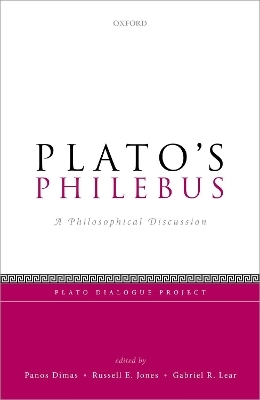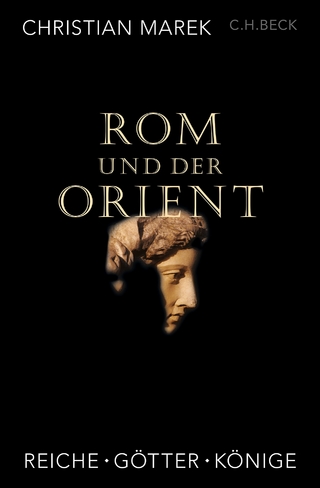
Plato's Philebus
Oxford University Press (Verlag)
978-0-19-880338-6 (ISBN)
The Philebus is an extraordinarily creative and profound examination of what makes for a good human life, containing some of Plato's most sophisticated discussions of moral psychology, knowledge, metaphysics, and philosophical methodology. The Philebushad a far greater influence on Aristotle's ethics than the frequently studied Republic - yet historians of philosophical ethics have relatively neglected it and existing commentaries tend to emphasize certain aspects at the expense of others. This edited volume, the first of its kind, brings together leading scholars of ancient philosophy to take a fresh and comprehensive look at this important work. Each essay focuses on a relatively brief section of the Philebus and discusses the passages methodically, covering topics such as pleasure, knowledge, philosophical method, and the human good in detail. The result is not and is not intended to be a commentary, nor does it aim to present a unified interpretation. It is instead a series of close, original philosophical examinations, often in conversation with each other, which together provide continuous coverage of the Philebus. This reference work, a useful resource for teaching and studying, is valuable reading for researchers, scholars, graduate students, and advanced undergraduates interested in Plato, ancient Greek ethics, and in the history of ethics.
Panos Dimas is Professor of Philosophy at the University of Oslo. Norway. His work focuses on ancient Greek cosmology, philosophical ethics and moral psychology. Russell E. Jones is Associate Professor of Philosophy at Harvard University. He has written on a number of aspects of Greek philosophical thought, especially on figures from the fifth and fourth centuries BCE. Gabriel R. Lear is Professor of Philosophy at the University of Chicago and is in its Committee on Social Thought. Her work focuses on ancient Greek and Roman philosophical ethics and aesthetics.
1: Sean Kelsey and Gabriel Lear: Introduction
2: Katja Maria Vogt: Rethinking the Contest Between Pleasure and Wisdom: Plato's Philebus 11a-14b
3: Paolo Crivelli: Division and Classification in the Philebus
4: Susan Sauvé Meyer: Why Pleasure and Reason are not the Good: Philebus 20b-23b
5: Mary Louise Gill: The Fourfold Division of Beings: Philebus 23b-27c
6: Hendrik Lorenz: Intelligence as Cause: Philebus 27c-31b
7: Satoshi Ogihara: The independence of the soul from the body: Philebus 31b-36c
8: Panos Dimas: Two Ways in which Pleasures can be False: Philebus 36c-42c
9: Giles Pearson: Putting the 'Stroppies' to work: Philebus 42c-47d
10: Pierre Destrée: Plato on Pleasures from Comedy: Philebus 47d-50e
11: James Warren: Truth, Beauty, Purity, and Pleasure: Philebus 50e-53c
12: Spyridon Rangos: Would you knowingly choose a life of little everyday deaths? The final attack on hedonism: Philebus 53c4-55c3
13: Jessica Moss: Knowledge and Measurement: Philebus 55c-59d
14: Russell E. Jones: Cooking Up the Good Life with Socrates: Philebus 59d10-64c4
15: Verity Harte: The Dialogue's Finale: Philebus 64c-67b
| Erscheinungsdatum | 07.11.2019 |
|---|---|
| Reihe/Serie | Plato Dialogue Project |
| Verlagsort | Oxford |
| Sprache | englisch |
| Maße | 161 x 235 mm |
| Gewicht | 584 g |
| Themenwelt | Geschichte ► Allgemeine Geschichte ► Altertum / Antike |
| Geisteswissenschaften ► Philosophie ► Allgemeines / Lexika | |
| Geisteswissenschaften ► Philosophie ► Ethik | |
| Geisteswissenschaften ► Philosophie ► Philosophie Altertum / Antike | |
| ISBN-10 | 0-19-880338-9 / 0198803389 |
| ISBN-13 | 978-0-19-880338-6 / 9780198803386 |
| Zustand | Neuware |
| Informationen gemäß Produktsicherheitsverordnung (GPSR) | |
| Haben Sie eine Frage zum Produkt? |
aus dem Bereich


